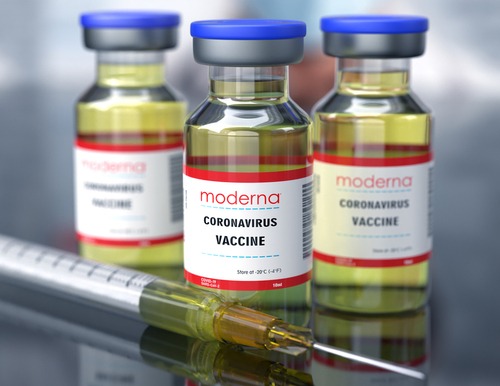
In a letter to high-ranking members of the Biden Administration’s COVID-19 response efforts, three Democratic senators and representatives this week urged a cautious review of the United States Health and Human Services (HHS) contract with Moderna, Inc. and called for efforts to expand global COVID-19 vaccine access.
U.S. Sens. Elizabeth Warren (D-MA) and Jeff Merkley (D-OR), as well as U.S. Rep. Pramila Jayapal (D-WA), claimed that Moderna has disproportionately benefited from federal resources made available for the development of COVID-19 vaccines, all while refusing to share its technology with others. This includes, most recently, nearly $10 billion meant to boost the company’s manufacturing capacity, aid its large-scale clinical trials and deliver vaccines.
“The contract Moderna entered into with the Biomedical Advanced Research and Development Authority (BARDA) may give the federal government legal authority to access and share the ingredient list and manufacturing instructions for Moderna’s COVID-19 vaccine,” the lawmakers said in a letter to Drs. David Kessler, chief scientific officer for the COVID-19 Response, and Gary Disbrow, BARDA director.
Under its contract with BARDA, Moderna granted BARDA unlimited rights to data funded by it, pursuant to Federal Acquisition Regulations. That federal clause defines data as recorded information as well as technical data. It’s through this clause the lawmakers hope to force BARDA to open its creations to the world.
The need for this, they stressed, is urgent, especially if President Joe Biden wishes to meet his stated goal of vaccinating roughly 70 percent of the world’s population. That would require roughly 11 billion doses, when as of July 4, 2021, only 3.2 billion doses had been administered. If the course continues as is, the International Monetary Fund predicts around six billion doses will be distributed by the end of 2021.
The lawmakers — backed by four other colleagues in the Senate and five in the House — argued that without cooperation from companies like Moderna, manufacturing facilities will waste time that could be spent rectifying a global issue. Currently, Moderna is projected to manufacture between 800 million and 1 billion doses of its vaccine this year.
“Moderna’s recent announcement that it plans to open a new mRNA facility in Africa to produce up to 500 million vaccine doses per year is promising, but it does not solve the immediate problem. This factory’s production will still not be sufficient to reach the Biden administration’s goal of ending the global pandemic by September 2022 because these doses will not be available for years. The announcement further “does not answer calls from African leaders and activists to waive patent laws that would give more drugmakers access to details on how coronavirus vaccines are produced. It also does not address the continent’s immediate COVID-19 vaccine shortages,” the letter states. “Instead, to reach these targets as quickly as possible, it will be necessary to dramatically expand global vaccine manufacturing, and manufacturers around the world, including in South Korea and South Africa, stand ready to help. But without cooperation from Moderna, these facilities will be forced to spend precious time trying to replicate existing mRNA technology.”




